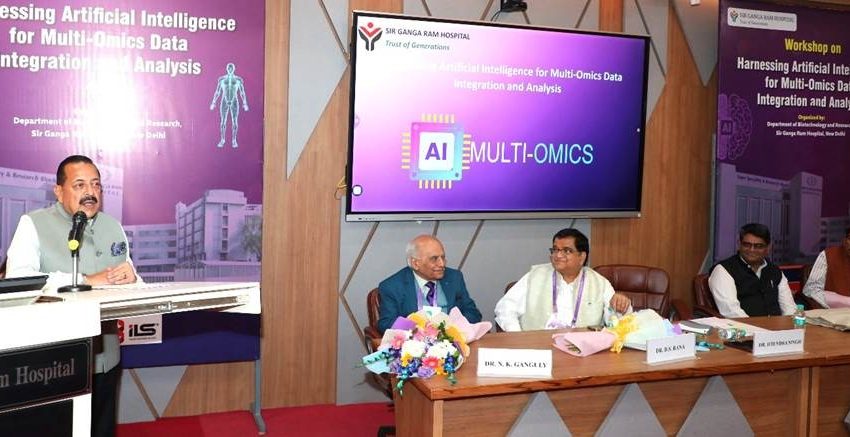India develops its first indigenously discovered antibiotic “Nafithromycin”

Nafithromycin is effective against resistant respiratory infections, particularly useful for cancer patients and poorly controlled diabetics
Team L&M
Union Minister of State (Independent Charge) for Science & Technology Dr Jitendra Singh has informed that India has developed its first indigenously discovered antibiotic “Nafithromycin”. The medicine is effective against resistant respiratory infections, particularly useful for cancer patients and poorly controlled diabetics. This is the first molecule entirely conceptualized, developed and clinically validated in India. And, it is a significant leap toward self-reliance in the pharmaceutical sector.
The antibiotic has been developed by the Department of Biotechnology in collaboration with private pharma house Wockhardt.
“It is an example of successful industry-academia partnership driving India’s biopharmaceutical growth,” he said. He further emphasised the need to build a self-sustainable innovation ecosystem. This would help India reduce its dependence on government funding. Further, it will create a culture of private sector participation.
Medical Workshop
Dr Singh was talking at the three-day Medical Workshop on “Harnessing Artificial Intelligence for Multi-Omics Data Integration and Analysis”. “India must develop a self-sustainable ecosystem to drive its scientific and research growth,” he said. “Most nations that have achieved global recognition in science and innovation have done so through self-sustaining, innovation-driven models with extensive engagement of the private sector,” he added.
The Minister also announced that India has achieved a major breakthrough in gene therapy. It conducted its first successful indigenous clinical trial for Hemophilia treatment. This was supported by Department of Biotechnology and done in Christian Medical College Vellore.
Dr Jitendra Singh further mentioned that India has already sequenced over 10,000 human genomes. The gene therapy trial recorded a 60–70% correction rate with zero bleeding episodes. This is a milestone in India’s medical research landscape. The findings have been published in the New England Journal of Medicine, and shows India’s growing leadership in this area.
Anusandhan National Research Foundation
Dr. Jitendra Singh said the Anusandhan National Research Foundation (ANRF) is a major step in this direction. It has a total outlay of ₹50,000 crore over five years, of which ₹36,000 crore will come from non-government sources. This model reflects a paradigm shift in India’s approach to research and development. It also aligns it with global standards and emphasising greater participation of academia and industry.
Dr. Jitendra Singh highlighted that Artificial Intelligence (AI) has become one of the most transformative tools of the modern era. AI is reshaping healthcare accessibility, governance efficiency, and decision-making. AI-based hybrid mobile clinics are already serving rural and remote regions. He also referred to the AI-driven grievance redressal system developed by the Department of Administrative Reforms and Public Grievances. This has achieved a weekly disposal rate of 97–98%, significantly improving citizen satisfaction and service delivery.
The Minister urged greater collaboration between government departments, private hospitals, and research institutes. This would help realise the vision of Viksit Bharat @2047, he said.
Dr. Jitendra Singh said that India is entering a new era of self-reliance in biotechnology, AI and genomic medicine. The convergence of innovation, collaboration and compassion will define India’s journey toward a developed nation. It will establish its leadership in the global science and technology landscape.

